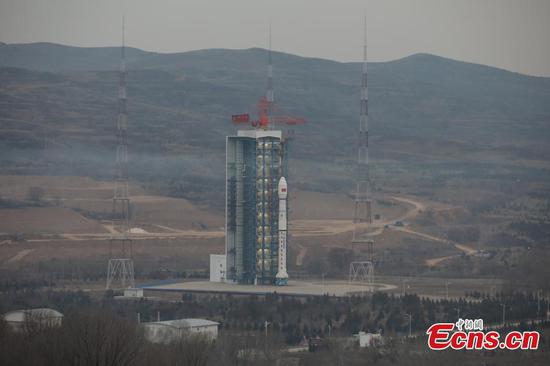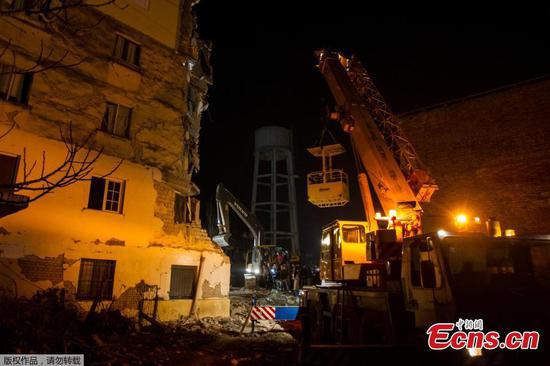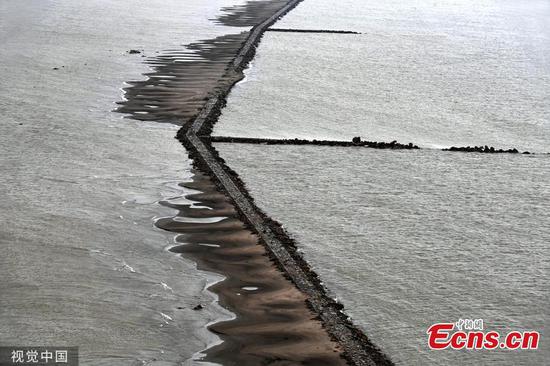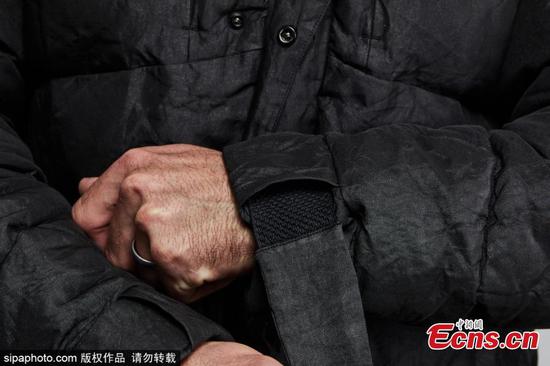Chinese telecommunications giant Huawei has reiterated its commitment to cybersecurity in Europe, following the news that Germany's parliament will debate whether or not to allow Chinese suppliers to participate in the country's 5G rollout.
At its party conference on Saturday, Germany's ruling Christian Democratic Union unanimously voted to hold a debate in the Bundestag on the involvement of foreign suppliers in the country's network infrastructure.
"Only those suppliers can be trustworthy that are not under the influence of undemocratic states," the CDU said in a statement.
The statement did not mention either Huawei or Shenzhen-based supplier ZTE by name. However, both companies were strongly alluded to in the discussions that preceded Saturday's vote.
"It must be clear-we cannot entrust Germany's 5G network to the Chinese state," said Norbert Roettgen, CDU member and chairman of the German foreign affairs committee.
Both Huawei and ZTE have repeatedly denied spying allegations, which Huawei says are politically motivated rather than evidence-based. The United States is currently lobbying its allies to join its long-standing boycott of Huawei.
"Politicizing cybersecurity will only hinder technology development and social progress while doing nothing to address the security challenges all countries face," Huawei said in a statement on Wednesday. "Huawei will continue to work openly with regulators, customers, and industry organizations to ensure that mobile networks are secure."
All major German mobile operators use Huawei equipment in their networks, and several have warned that a ban on Huawei would significantly delay the rollout of 5G in the country.
German Chancellor Angela Merkel is now seemingly at odds with a faction within her own party that opposes Huawei's participation in network upgrades.
In March, Merkel stood up to pressure from the US to ban Huawei. She said that while Germany would tighten regulation in the telecommunications sector, it would not exclude any single supplier "simply because it is from a certain country".
Germany has since rolled out a catalog of updated security requirements for service providers and operators, which Huawei welcomed.
"Germany has set higher and consistent security standards for all vendors," Huawei said in a statement last month. "All vendors are equally and fairly welcome to participate in the construction of 5G networks if they fulfill the security requirements. This fact-and standards-based approach is of exemplary significance for addressing global cybersecurity challenges."
On Wednesday, Merkel pushed for a European Union-wide approach on 5G development.
"One of the biggest dangers is that individual countries in Europe will have their own policies toward China and then mixed signals will be sent out," she said in the Bundestag. "That would be disastrous not for China but for us in Europe."
Merkel suggested that Germany and France should align future policy on 5G security, which would then serve as a framework for a common solution for the rest of Europe.
On Monday, French Secretary of State for Economy and Finance Agnes Pannier-Runacher said that while France will vet foreign suppliers, it will not join the US in a Huawei ban.
"The government will not exclude anyone. We are not following the position of the United States," Pannier-Runacher told French news channel BFM Business. "We will proceed on a case-by-case basis."
The United Kingdom has been mulling potential restrictions on Huawei for much of this year. The Conservative Party leadership contest and Brexit negotiations both delayed the government's final verdict. Earlier this month, Digital Secretary Nicky Morgan said that the judgement will now fall on the next government, which will be formed after the UK general election on Dec 12.


















































